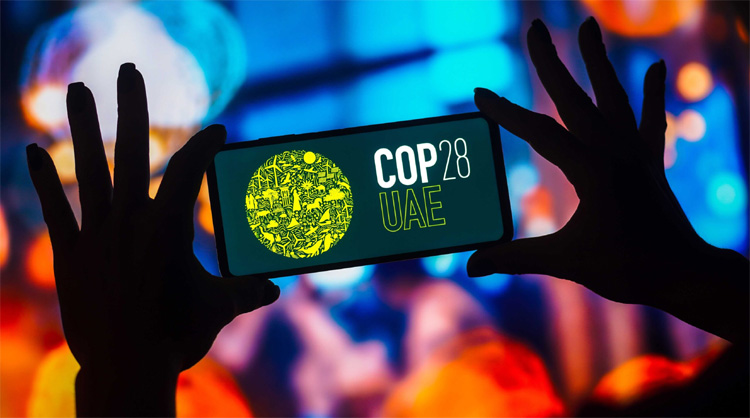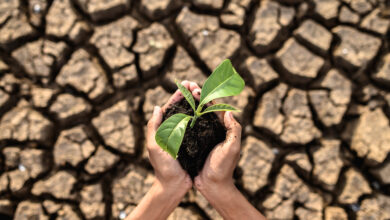COP28: India’s Crucial Role in Shaping Climate Justice and Finance

How India advocates for an updated global climate finance objective, recognizing the escalating expenses associated with climate change mitigation and adaptation.
India’s position at COP28, the United Nations Climate Change Conference, places a strong emphasis on the significance of adaptation and fairness when dealing with the challenges of climate change.
Leena Nandan, the Secretary of the Ministry of Environment, Forest, and Climate Change for the Government of India, delivered a keynote address at the World Sustainable Development Summit, highlighting the essential role of adaptation in achieving climate justice. While acknowledging that mitigation efforts have traditionally taken the forefront, India contends that supporting vulnerable nations through financial aid and infrastructure development is vital for addressing the impacts of climate change.
India made a substantial contribution to the prior COP27 conference by advocating for the creation of the Loss and Damages Fund, designed to provide compensation to nations impacted by climate change. Nevertheless, a consensus regarding the funding of this initiative is still elusive, despite estimates indicating a minimum need of $500 billion for the Loss and Damages Fund.
In COP28, a ‘global stocktake’ will be a prominent feature, during which participating nations will provide updates on their advancements in fulfilling their voluntary emissions reduction pledges and engage in discussions on strategies to bridge existing gaps.
Key points of COP28
Key focal points at COP28 encompass mitigation, adaptation, loss and damage, and finance. There will be a strong emphasis on bolstering commitments to reduce emissions in order to counter the alarming trajectory of global warming. Climate finance remains a pivotal concern, necessitating the mobilization of funds and the restructuring of the global financial system to bolster climate action. The involvement of private finance and the overhaul of multilateral development banks are integral components of this transformation.
India’s proactive participation, collaboration between developed and emerging economies, and unwavering commitment to addressing climate challenges underscore the nation’s significant role in shaping the outcomes and achievements of COP28.
Potential areas for the involvement of Indian organizations at the COP28 India Pavilion:
Circular Economy and Sustainable Lifestyles
Organizations have the opportunity to exhibit their initiatives and commitments aimed at fostering a circular economy and promoting sustainable lifestyles. They can spotlight their endeavors to reduce waste, increase recycling rates, and create innovative packaging solutions that facilitate a circular economy.
Waste Management and Extended Producer Responsibility
Organizations can share their strategies for waste management and their approach to Extended Producer Responsibility (EPR). They can underscore their projects for reducing plastic packaging waste, with particular emphasis on single-use plastics, and advancing recycling efforts.
Sustainable Agriculture and Climate Resilience
Organizations can present their initiatives aimed at promoting sustainable agriculture and bolstering climate resilience within the agricultural sector. They can elaborate on their efforts to advocate for regenerative farming practices, water conservation, and climate-smart agricultural techniques among farmers.
Renewable Energy and Carbon Emissions Reduction
Organizations have the opportunity to exhibit their dedication to renewable energy adoption and the reduction of their carbon footprint. They can present their advancements in shifting towards renewable energy sources for their manufacturing facilities and distribution centers in India.
Water Stewardship and Conservation
Organizations can underscore their initiatives in water stewardship and their contributions to water conservation efforts in India. They can bring attention to their water replenishment projects, community-driven water conservation programs, and measures taken to minimize water consumption throughout their entire value chain.
Collaboration and Partnerships
Organizations can display their collaborations and partnerships with diverse stakeholders in India, which may encompass government agencies, non-governmental organizations, farmers, and local communities. They can emphasize the significance of engaging multiple stakeholders and taking collective action to address climate change and attain sustainable development objectives.
Youth and Community Involvement

Organizations can place their focus on involving and empowering both youth and local communities in India to actively participate in climate action. They can emphasize their efforts to raise awareness, provide education, and mobilize young individuals and community members to engage in sustainable behaviors and advocacy endeavors.
Furthermore, they can present success stories and exemplary approaches from their programs geared toward the youth, which aim to encourage environmental conservation and enhance climate resilience.
Conclusion
The participation of organizations at the COP28 India Pavilion can serve as a testament to their dedication to sustainability, climate action, and ethical business practices. Through the presentation of their initiatives, partnerships, and contributions in areas that align with India’s stance at COP28, they can play a pivotal role in shaping the conference’s outcomes and serve as an inspiration to others, encouraging meaningful actions towards a more sustainable future.
Join the sustainability revolution in India with The Disposal Company’s innovative climate action platform, which enables brands to become plastic-neutral and carbon-neutral. Click here to find out more.




